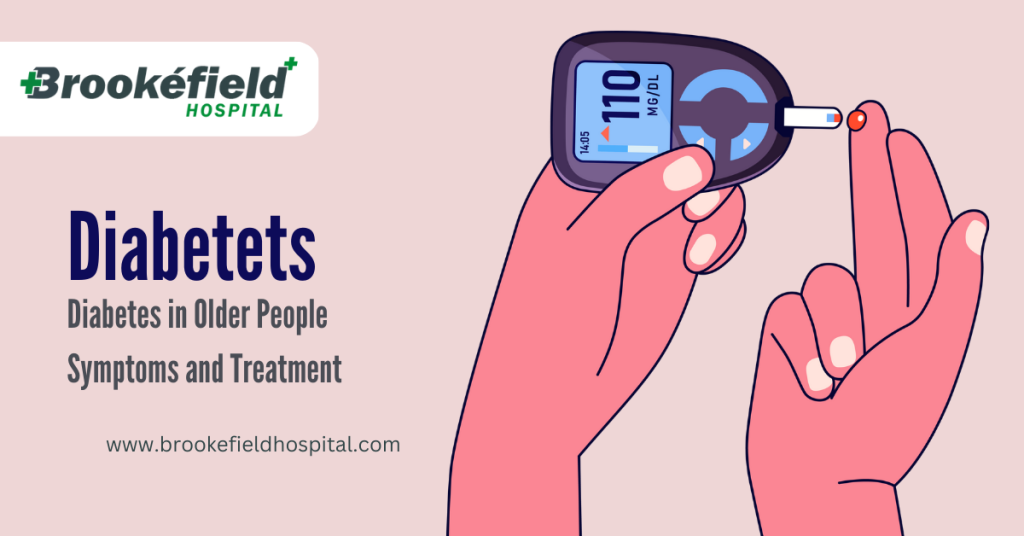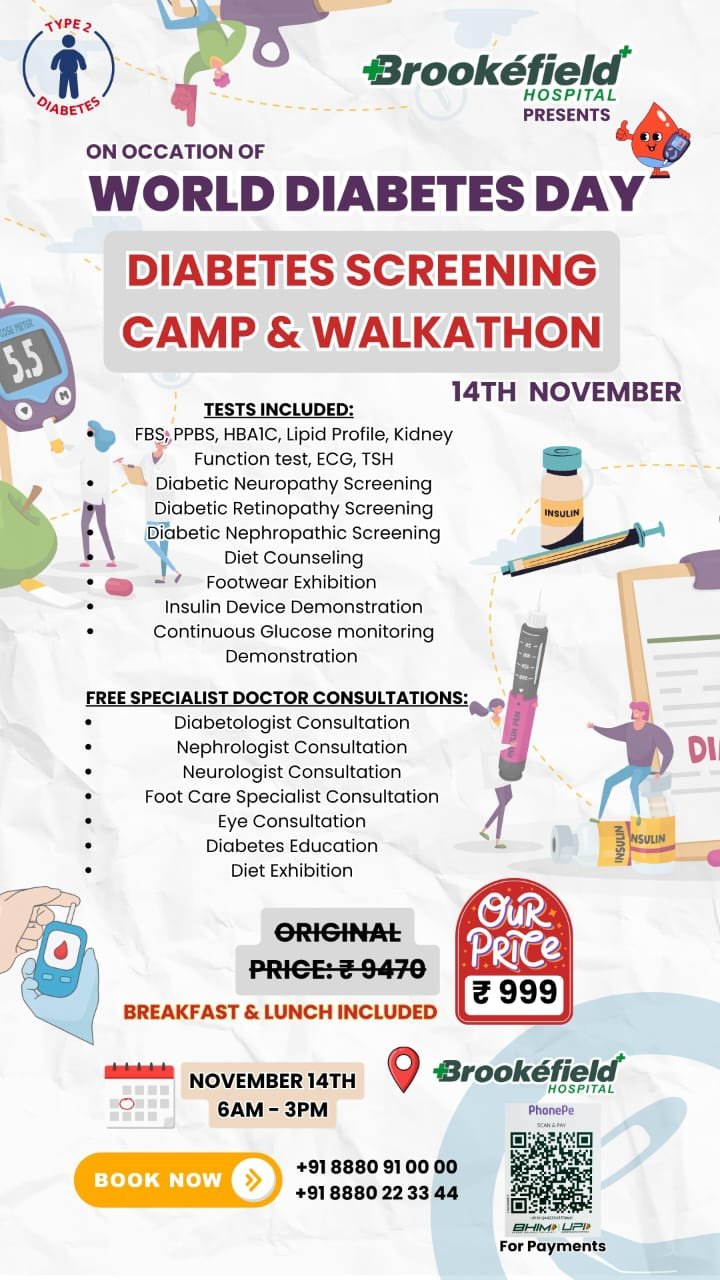Diabetes in Older People: Diabetes is a chronic medical condition that affects millions of people worldwide, and its prevalence is particularly high among older adults. In fact, diabetes is one of the most common chronic diseases among older adults, and it can lead to serious complications if left untreated. In this article, we will discuss the symptoms and treatment of diabetes in older people.
Introduction – Diabetes in Older People
Diabetes is a condition that occurs when your blood glucose levels are too high. Glucose is your body’s primary source of energy, and it comes from the foods you eat. Insulin, a hormone produced by your pancreas, helps your body use glucose for energy. When you have diabetes, your body either doesn’t produce enough insulin or can’t use insulin effectively, leading to high blood glucose levels.
What is Diabetes?
There are two main types of diabetes: type 1 and type 2. Type 1 diabetes is an autoimmune disease that occurs when your immune system attacks and destroys the cells in your pancreas that produce insulin. Type 2 diabetes, on the other hand, is a metabolic disorder that occurs when your body doesn’t use insulin effectively or doesn’t produce enough insulin.
Why are older adults at risk for diabetes?
Older adults are at a higher risk for developing diabetes due to a variety of factors. As you age, your body’s ability to produce insulin decreases and your cells become less responsive to insulin. Additionally, older adults are more likely to be overweight or obese, which can increase their risk of developing type 2 diabetes.
Symptoms of diabetes in older people
The symptoms of diabetes in older people can be subtle and may not be immediately noticeable. Some common symptoms of diabetes in older people include:
- Frequent urination
- Excessive thirst
- Blurred vision
- Fatigue
- Slow healing of cuts and bruises
- Numbness or tingling in the hands or feet
- Complications of diabetes in older people
If left untreated, diabetes can lead to a variety of complications in older people, including:
- Cardiovascular disease
- Kidney disease
- Nerve damage
- Eye damage
- Foot damage
Diagnosis of diabetes in older people
Diabetes is diagnosed through a series of blood tests that measure your blood glucose levels. If your blood glucose levels are consistently high, your doctor may diagnose you with diabetes.
Treatment of diabetes in older people
There is no cure for diabetes, but it can be managed with a combination of lifestyle changes, medications, and insulin therapy.
Lifestyle changes for managing diabetes in older people
Lifestyle changes are an essential part of managing diabetes in older people. Some lifestyle changes that can help manage diabetes include:
- Eating a healthy diet that is low in carbohydrates and sugar
- Exercising regularly
- Maintaining a healthy weight
- Monitoring your blood glucose levels regularly
- Medications for managing diabetes in older people
Insulin therapy for managing diabetes in older people
Insulin therapy may be necessary for older people with diabetes who cannot manage their blood glucose levels with lifestyle changes and medications alone. Insulin can be injected using a needle and syringe or through an insulin pen. Your doctor will work with you to determine the appropriate dosage and frequency of insulin injections.
Importance of regular check-ups for managing diabetes in older people
Regular check-ups with your doctor are essential for managing diabetes in older people. During these check-ups, your doctor will monitor your blood glucose levels and adjust your treatment plan as necessary. They may also check for complications of diabetes, such as cardiovascular disease and kidney disease.
Conclusion: Diabetes in Older People
Diabetes is a common chronic condition among older adults that can lead to serious complications if left untreated. Symptoms of diabetes in older people can be subtle, so it’s important to be aware of the risk factors and to get regular check-ups with your doctor. Lifestyle changes, medications, and insulin therapy can help manage diabetes in older people.
Get Diabetes Treatment
So Looking for diabetes treatment in Bangalore must book an appointment with Brookefield Hospital, One of the top-rated multi-specialty hospitals that provides the best diabetes care and management services.
FAQs: Diabetes in Older People
Can diabetes be cured?
No, there is currently no cure for diabetes. However, it can be managed with lifestyle changes, medications, and insulin therapy.
Is type 1 diabetes more common in older people?
No, type 1 diabetes is more commonly diagnosed in children and young adults.
Are there any natural remedies for diabetes?
While some natural remedies may help manage diabetes symptoms, they should not be used as a substitute for medical treatment. Always talk to your doctor before trying any new remedies or supplements.
How often should older people with diabetes get check-ups?
Older people with diabetes should get regular check-ups with their doctor at least once a year.
Can diabetes be prevented?
While there is no guaranteed way to prevent diabetes, maintaining a healthy lifestyle and managing any underlying health conditions can help reduce your risk of developing diabetes.




